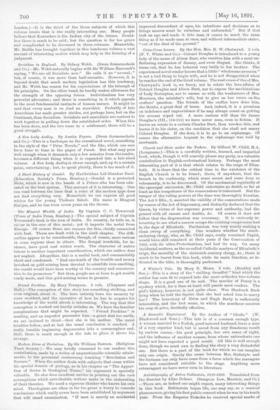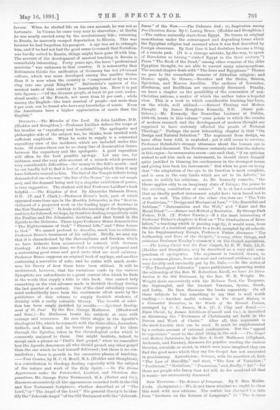Autobiography of Anton Rubinstein, 1820 - 1889. Translated from the Russian by
Aline Delano. (Sampson Low, Marston, and Co.) —There are, as indeed one might expect, many interesting things in this book. Rubinstein began life, one may say, as a musical phenomenon, giving his first public concert when he was in his tenth year. From the Emperor Nicholas he received special marks of favour. When he started life on his own account, he was not so fortunate. In Vienna he came very near to starvation ; at Berlin he was nearly carried away by the revolutionary tide ; returning to Russia, he narrowly escaped deportation to Siberia. This was because he had forgotten his passport. A spy was set to entangle him, and if he had not had the good sense to remark that Socialism was hardly suited to Russia, things might have gone ill with him. The account of the development of musical teaching in Russia is remarkably interesting. Forty years ago, the term professional musician" was unknown in that country. It is noteworthy that Rubinstein thinks the unification of Germany has not advanced culture, which was more developed among the smaller States than it is now when the country is "compressed as by an iron ring into one great Kingdom." Rubinstein's opinion of the musical taste of this country is lamentably low. Here it is put into figures s--" Of the German people, at least 50 per cent. under- stand music ; of the French, not more than 10 per cent. ; while among the English—the least musical of people—not more than 2 per cent. can be found who have any knowledge of music. Even the Americans have a higher appreciation of music than the English."



































 Previous page
Previous page